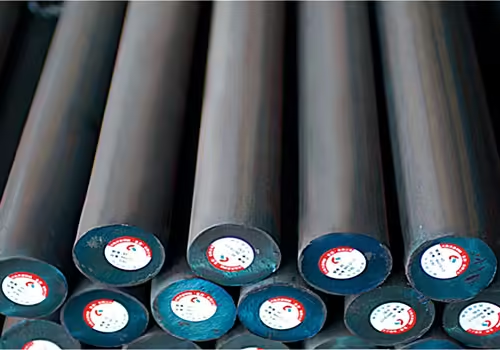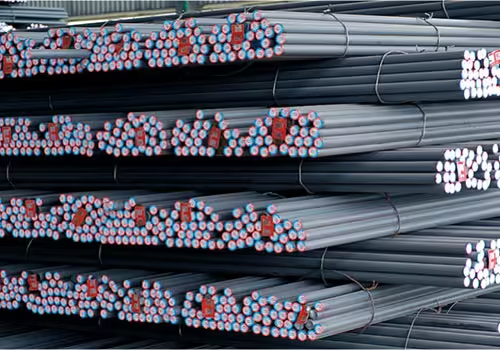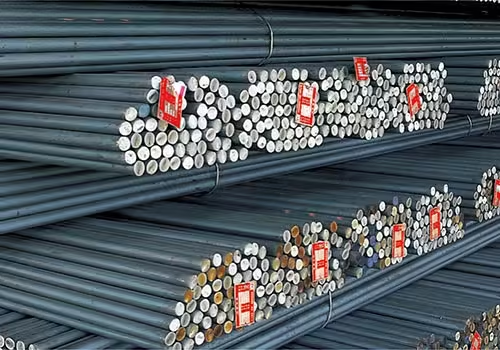
Top 9 Advantages of Using 4140 Steel Tubing in Construction
Table of Contents
Introduction

In the world of construction, the choice of materials directly impacts the strength, durability, and longevity of a project. Among various materials, 4140 steel tubing has emerged as a favored choice for many engineers and builders due to its exceptional properties. Known for its high strength, toughness, and resistance to wear, 4140 steel tubing offers distinct advantages that make it suitable for demanding construction applications. This article explores the top 9 advantages of using 4140 steel tubing in construction, helping professionals understand why this material is trusted across numerous projects worldwide.
4140 steel tubing is a chromium-molybdenum alloy steel that delivers a perfect balance of hardness and ductility. Its versatility and robust mechanical properties allow it to endure the stress and strain common in structural and mechanical construction scenarios.
By the end of this comprehensive guide, you will have a clear understanding of the benefits of 4140 steel tubing and why it continues to be a material of choice for critical construction applications.
NO 1. High Strength-to-Weight Ratio
One of the most notable benefits of using 4140 steel tubing in construction is its impressive strength-to-weight ratio. This material delivers high tensile and yield strength while maintaining a relatively low weight compared to traditional carbon steels. This unique balance makes it a top choice for structural applications where both strength and weight reduction are key considerations.
From skyscraper frameworks to industrial support beams, 4140 steel tubing ensures the structure remains strong under heavy loads without adding unnecessary bulk. Engineers and designers highly value this property, as it allows for greater design flexibility, enabling slender and sleek architectural elements that do not compromise on safety or stability.
Application in Load-Bearing Structures
4140 steel tubing is particularly useful in high-load applications, such as cranes, bridges, and towers. It helps maintain structural integrity under stress, resisting both deformation and breakage. The high strength-to-weight ratio also means that components made from this material are easier to transport and install, reducing project costs and logistical challenges.
Cost and Efficiency Benefits
Reduced weight translates to lower shipping fees and quicker assembly times, ultimately contributing to overall project savings. This also minimizes the requirement for oversized foundations or support structures, streamlining the construction process. In locations where equipment access is limited, the lighter yet strong 4140 steel tubing proves especially advantageous.
Impact on Structural Design
By integrating 4140 steel tubing, architects and engineers can design with fewer material constraints. This allows for longer spans, taller structures, and more innovative architectural features, all while maintaining compliance with safety standards. As cities grow vertically, such strength-to-weight efficiency is becoming increasingly critical.
NO 2. Exceptional Toughness and Fatigue Resistance
Construction materials often face repetitive loading and unloading cycles, leading to fatigue failure. 4140 steel tubing excels in this regard due to its superior toughness and fatigue resistance. This alloy steel is engineered to absorb and dissipate energy, which helps prevent cracks and fractures over prolonged periods of use.
Fatigue resistance is essential in infrastructure projects like bridges, cranes, and heavy machinery frameworks where dynamic forces are routine. The use of 4140 steel tubing ensures a longer service life and reduces the need for frequent repairs or replacements, making it a cost-effective option.
How Toughness Benefits Construction Durability
The toughness of 4140 steel tubing makes it less prone to catastrophic failure, providing added safety margins in construction projects. This resilience enhances structural integrity and reliability under harsh environmental conditions and heavy mechanical stresses.
NO 3. Excellent Machinability and Fabrication Flexibility
Despite its strength, 4140 steel tubing maintains good machinability, which allows for precise fabrication and customization. This property is essential in construction, where materials often need to be cut, welded, bent, or drilled on-site to meet specific design requirements.
4140 steel tubing can be heat treated to achieve desired mechanical properties, giving constructors flexibility in adapting the material to various structural roles. Its ability to be machined without excessive tool wear saves time and reduces manufacturing costs.
Fabrication in Construction Projects
Whether used in pipe frames, handrails, or mechanical components, the ease of fabrication of 4140 steel tubing supports faster project completion. Its compatibility with standard welding techniques also facilitates strong and reliable joints, critical for structural safety.
NO 4. Superior Corrosion and Wear Resistance in Construction Environments

Construction sites can be harsh environments, exposing materials to moisture, chemicals, and abrasive particles. The chemical composition of 4140 steel tubing, including chromium and molybdenum, enhances its resistance to corrosion and wear.
This property is crucial for outdoor and industrial applications where exposure to weather and chemicals can degrade lesser materials quickly. Using 4140 steel tubing can minimize maintenance needs and extend the lifespan of structural components exposed to such conditions.
Real-World Applications Benefiting from Corrosion Resistance
In bridges, marine structures, and chemical plants, corrosion resistance reduces the risk of structural failure and safety hazards. Additionally, it lowers long-term maintenance costs, ensuring that the initial investment in 4140 steel tubing yields sustained returns.
NO 5. Cost-Effectiveness and Long-Term Value
While 4140 steel tubing might have a higher upfront cost compared to standard carbon steel, its durability, lower maintenance, and reduced failure rates translate to significant cost savings over time. This long-term value is a critical factor in construction projects with strict budgets and timelines.
Investing in high-quality materials like 4140 steel tubing often results in fewer downtime periods and a more reliable structure, which is especially important in commercial and industrial constructions where operational continuity is essential.
Key Properties of 4140 Steel Tubing Used in Construction
| Property | Description | Typical Value |
|---|---|---|
| Tensile Strength | Resistance to breaking under tension | 90,000 – 100,000 psi |
| Yield Strength | Stress at which material begins to deform | 60,000 – 70,000 psi |
| Hardness (HRC) | Resistance to surface indentation | 28 – 32 HRC |
| Elongation | Measure of ductility | 20% – 25% |
| Corrosion Resistance | Ability to withstand chemical degradation | High (due to Cr, Mo content) |
| Fatigue Resistance | Resistance to repeated stress cycles | Excellent |
| Machinability | Ease of cutting, welding, and shaping | Good |
This table summarizes important mechanical and chemical properties that make 4140 steel tubing highly suitable for a wide range of construction purposes.
NO 6. Adaptability to Various Construction Applications

4140 steel tubing’s blend of strength, toughness, and machinability allows it to be used across many construction sectors. From framing systems and support beams to mechanical parts and infrastructure elements, this tubing adapts well to diverse needs.
It is especially favored in heavy construction projects such as:
- Bridge building
- Industrial plant fabrication
- Heavy equipment manufacturing
- Structural reinforcements in seismic zones
This adaptability ensures that construction teams can rely on 4140 steel tubing as a versatile and dependable material.
NO 7. Resistance to Impact and Abrasion in Harsh Conditions
In rugged construction environments, materials are frequently exposed to impact and abrasive wear. This high-performance alloy stands out for its toughness and surface durability, offering excellent resistance that helps prevent premature failure. As a result, project downtime and maintenance costs are significantly reduced.
Applications involving heavy machinery, forklifts, or areas prone to debris collisions benefit especially from using this type of structural tubing to maintain long-term integrity and safety under harsh conditions.
NO 8. Compatibility with Heat Treatment for Enhanced Properties
This versatile steel grade responds well to heat treatments such as quenching and tempering, allowing engineers to tailor its mechanical characteristics to meet specific demands. These treatments improve strength and hardness while maintaining the alloy’s inherent toughness.
Such adaptability makes it possible to optimize material properties based on the performance requirements of various construction scenarios. Whether for support beams or high-stress connectors, the tubing’s flexibility contributes to improved reliability across applications.
NO 9. Availability and Industry Standards Compliance
As a widely recognized alloy in the construction sector, this material is readily available from numerous global suppliers. It typically conforms to stringent industry specifications, including standards set by ASTM and SAE.
Widespread availability and reliable compliance simplify procurement and planning for engineering teams, ensuring consistent quality and performance without supply chain disruptions. For builders and fabricators, using standardized components is essential to meet both safety regulations and project timelines.
Conclusion
Choosing the right materials is fundamental to the success and safety of any construction project. The advantages of using 4140 steel tubing — from its high strength-to-weight ratio, toughness, and corrosion resistance, to its machining ease and cost-effectiveness — make it a preferred option in modern construction.
By investing in 4140 steel tubing, engineers and builders can enhance project durability, reduce maintenance costs, and ensure compliance with safety standards. As construction demands evolve, the proven performance of 4140 steel tubing continues to support innovation and resilience in the industry.
FAQ
What makes 4140 steel tubing better than other steel types for construction?
4140 steel tubing offers a unique combination of high strength, toughness, and machinability, along with superior corrosion and wear resistance, which many standard steels lack.
Can 4140 steel tubing withstand extreme weather conditions?
Yes, its chemical composition and mechanical properties give it excellent resistance to environmental factors like moisture, heat, and chemical exposure.
Is 4140 steel tubing suitable for welding and fabrication?
Absolutely. It is known for good machinability and weldability, making it easy to customize on construction sites.
How often should 4140 steel tubing be inspected for structural use?
Regular inspections depend on the project, but generally, routine checks every 6-12 months are recommended for safety and maintenance.
Does using 4140 steel tubing significantly increase construction costs?
While the initial cost may be higher than basic steels, its durability and low maintenance often result in overall savings during the project lifecycle.






